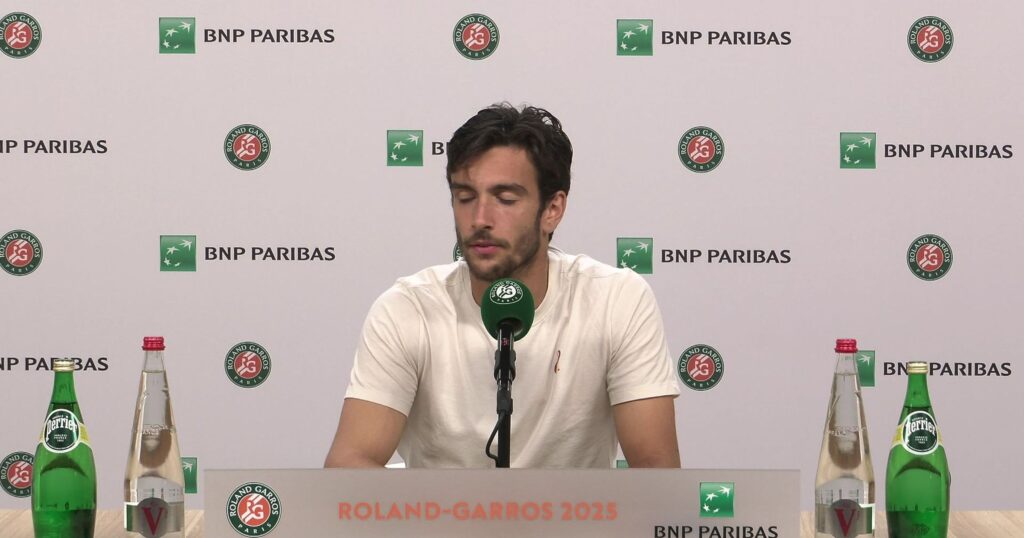At the recently concluded Roland Garros tournament, young Italian tennis player Lorenzo Musetti found himself in a predicament that had the potential to overshadow his performance on the court. Known for his formidable skills and the promise of a bright future in tennis, Musetti faced an unexpected incident that raised eyebrows and sparked discussions among fans and analysts alike. He admitted feeling a wave of fear after accidentally kicking a ball in the direction of a line judge, an event that could have led to serious consequences under the rules of the sport.
The tension peaked during a critical match when Musetti, caught in the heat of the moment, inadvertently directed a wayward ball towards the official. While his intention was not malicious, the possibility of endangering someone on the court loomed heavy in his conscience. In his post-match remarks, he expressed his deep remorse, categorically stating, “I didn’t want to harm anyone.” This sentiment echoed the thoughts of many athletes who often find themselves navigating the fine line between competitive fervor and sportsmanship.
Musetti’s admission illustrates the intense pressure that professional athletes face during high-stakes competitions like the French Open. The margins for error are razor-thin, and a mere moment of inattention can lead to a cascade of repercussions that alter not just the flow of a match but an athlete’s career trajectory. Reflecting on the incident, Musetti shared his internal conflict, explaining how fleeting seconds can morph into a whirlwind of emotions, from determination to panic, especially when an athlete feels responsible for a misstep that could jeopardize the safety of others.
Leading up to the incident, Musetti exhibited an admirable level of poise and resilience on the clay courts of Roland Garros, showcasing his talent with impressive shot-making and strategic gameplay. However, the moment he lost control of the ball shifted the narrative. Observers noted the immediate reaction of the line judge, which further amplified the emotional weight of the situation. The role of officials in maintaining fairness and safety cannot be understated, and Musetti clearly recognized this.
Moreover, this incident provokes a broader discussion about the emotional aspects of competitive sports. The dynamics of pressure may lead players to act in ways that, while unintentional, can lead to serious ramifications. Athletes are not just competitors; they are human beings grappling with their own fears, hopes, and the implications of their actions on and off the court. This reality serves as a reminder that sportsmanship extends beyond the mere act of playing; it encompasses accountability towards fellow competitors, officials, and the integrity of the sport itself.
In the aftermath, analysts and fans alike rallied around Musetti, applauding his candidness in addressing the incident. It is often the responses to mistakes that define an athlete’s character, revealing their capacity for empathy and reflection. By openly acknowledging his fear and regret, Musetti not only redressed an immediate concern but also laid down a foundation for conversations about the psychological challenges athletes encounter in high-pressure environments.
As he continues his career, Musetti’s experience at Roland Garros will likely serve as a pivotal learning moment. It emphasizes the continual balancing act that athletes must perform between competitive spirit and ethical responsibility. Moving forward, fans will undoubtedly keep a close eye on Musetti, not just for his on-court exploits but also for how he evolves as a person and sportsman in the wake of unavoidable challenges. In the world of tennis, marked by the grass of Wimbledon, the hard courts of the US Open, and the clay of Roland Garros, it is crucial to remember that every player’s journey is fraught with both triumphs and trials, each contributing to their evolving legacy in the annals of sport.



